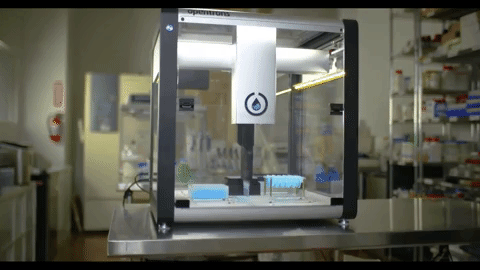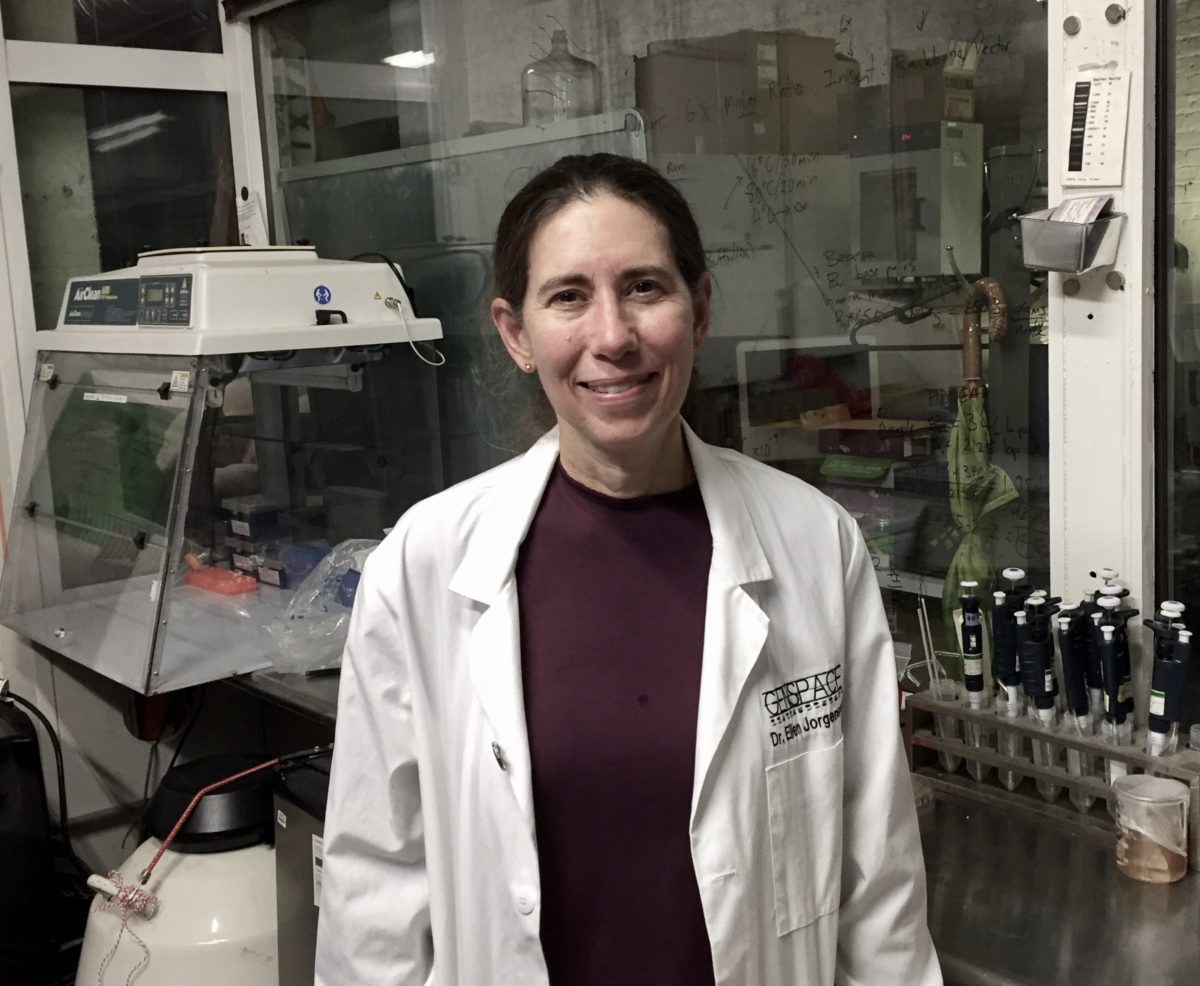The origins of Brooklyn’s latest well-funded startup are not what you’d expect.
Founder Will Canine came to New York to participate in the anti-capitalist protest Occupy Wall Street. He got the idea for his biotech and robotics startup from a dusty community biolab and hackerspace called Genspace.
Now Canine is announcing a $10 million seed funding round for his company, Opentrons, led by Khosla Ventures with participation from fellow heavy hitters Lerer Hippeau Ventures and Y Combinator.
Opentrons’ premier product is a sort of 3D printer for biolab work. It’s called the OT-2 and it automates pipetting, which can often be a monotonous and labor-intensive task, in laboratories.
“You’ll see 20-hour experiments where grad students have to go dose a cell every 10 minutes and take a picture. But we have a user in San Diego who, using our protocol API, just hit ‘run’ and walked away,” Canine explained by phone in an interview with Technical.ly.
The OT-2 looks like a 3D printer, a box with a clear door and sides and a mechanical arm that moves where it’s programmed to. But instead of melting and laying down filament, the OT-2 adds a precise amount of fluid to a rack of test tubes.
“Opentrons has an amazing story,” Ellen Jorgensen, a cofounder and former director of Genspace, said in an email. “Several years ago, Will Canine took several biotech classes with me in my former community lab. He noticed that there was a lot of pipetting and it was tedious. At the time, he was a student at NYU getting a Master’s degree in a program called ITP that’s a technology program for artists. He had a thesis requirement and decided that the 3D printers he was working with at school had the potential to be converted to liquid handling devices for the lab. He built his first prototype in my community lab.”
Jorgensen, who last year launched a similar community called Biotech Without Borders, continued:
The story is interesting because, not being a scientist, Will had no idea that lab pipetting robots already existed. They were large finicky machines costing upwards of $100,000 and had complicated software and calibration issues. Will has a background in political organizing. But he’s found a sweet spot in the market. Few labs can afford high priced robots but his at $4,000 is a very cheap piece of equipment for a lab. It is a very desirable thing at low cost. It does not have all the bells and whistles of the large ones, but most folks don’t need that.
And that seems to be what’s drawing so much interest from venture capital.
Robotics competitors such as Gilson and Andrew Alliance have similar products but neither of them show a price on their website, or in a downloadable brochure for their products. According to Canine, competitors’ prices tend to be around $40,000 for these machines, which is 10 times the $4,000 he’s selling the OT-2 for.
How does he make that work?
“All the other robots are based on industrial robotics platforms,” Canine explained. “We’re using a completely different supply chain: the desktop 3D printer. It has equally precise motors and is equally fast.”
Since his frustration with pipetting at Genspace in Sunset Park, Canine teamed up with cofounder Chiu Chau. It was 2014 and Canine had just graduated. Chau had more than 20 years of experience in engineering and manufacturing and the two of them set out to launch an early version of the product on Kickstarter. The campaign raised $126,000 from 237 backers and helped them get into the prestigious West Coast accelerator Y Combinator in 2016.
Now settled in Dumbo, where it has a staff of 30 employees in addition to 15 in China, Opentrons has sold its lower-cost pipetting machine to hundreds of labs in 40 countries around the world, according to Canine, including MIT and Columbia but also including community colleges and schools in the developing world that would not have been able to afford such a machine previously.
We asked Canine, who besides his involvement in the Occupy movement also previously worked for the anticapitalist magazine The New Inquiry what it’s like for him to now be, well, sort of an archetype of capitalism.
“I still honestly think the vision of Occupy Wall Street is a good one but I also am a pragmatist and I want to create good things,” he responded. “Venture capital is a highly effective tool for getting things out in the world very fast.”
There’s more than one way to get to Sand Hill Road, it would seem.
Join the conversation!
Find news, events, jobs and people who share your interests on Technical.ly's open community Slack

